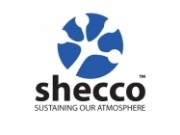Marc Chasserot, Chairman of ATMOsphere 2010, spoke with R744.com about the aim and the benefits of this international workshop on CO2, ammonia and hydrocarbon refrigerants. Being the first event where so many policy representatives from around the world gather to talk about the future of natural refrigerants, it is a golden opportunity for the industry to communicate its message to policy people that want to listen, he concludes.
source: R744.comR744.com: The main goal of ATMOsphere 2010 is to figure out HOW to bring natural refrigerants faster to market. For this you have changed the concept of the event compared to last year. How will you manage the delegates this year to not just talk but also encourage concrete actions?
Marc Chasserot: This year we are applying a special ATMOsphere formula. This formula has three major elements: First, all participants will have to complete a detailed survey about barriers and solutions to natural refrigerants. Secondly, all participants will be split up into small groups of ten, each with a moderator to discuss concrete actions. Thirdly, all the presentations, discussions and recommendations will be summarised into a report that will be distributed widely within industry and policy circles.
R744.com: Who are the policy experts coming and how do you get them to listen and not leave after their presentations?
Chasserot: It is always a challenge to have the policy experts attend for two days given their busy schedules. However, many of them are coming from outside of Brussels. They will be staying for two days and also participate in the group discussions. For the Brussels-based experts, many will be attending from the European Commission and the European Parliament and the majority will participate in the workshops as well. Besides the high-profile policy speakers, we have also many policy experts from around the globe that registered as normal participants. In addition, together with the United Nations Environment Programme (UNEP), we are funding the travel and participation of 10 representatives from developing countries. A selection of policy speakers and participants can be found below:
Speakers
- Rajendra Shende from UNEP
- Lambert Kujipers from TEAP
- Julius Banks from the U.S. Environment Protection Agency
- Philip Owen from the European Commission DG Climate Action
- Robert Missen from the European Commission DG Energy
- Theodoros Skylakakis, Member of the European Parliament
- Sidi Menad Ahmed from UNIDO
- Javier Camargo from the ExCom of the Multilateral fund of the Montreal Protocol
- Satu Hassi, Member of the European Parliament
- Nidia Pabón, Ministry of Housing and Environment, Colombia
- Miruza Mohamed, Ministry of Housing and Environment, Maldives
- Ryoichi Yamamoto, Senior Advisor to the Japanese Government
- R. S. Agarwal, Senior Advisor UNDP Project, India
- Souvik Bhattacharyya - Indian Institute of Technology Kharagpur
- European Commission, Belgium
- Environmental Protection Agency, Sweden
- Federal Environment Agency, Germany
- Ozone Layer and Climate Protection Unit, Poland
- Ministry of Environment Protection, Ukraine
- National Environment Agency, Gambia
- Fondoin, Venezuela
- National Ozone Unit, Grenada
- Ministry for Coordination of Environmental Affairs, Mozambique
- Sustainable Agriculture and Environment, Iran
- National Environmental Protection Agency, Afghanistan
Chasserot: In addition to the special fund for delegates from developing countries, we integrated these criteria in our call for papers for the technical presentations. One main focus of the policy session is the point of view of developing countries as well. We will have presentations from policy experts from Colombia or the Maldives. Other key elements are the special lunch sessions on India and the summary report that will be distributed to UN delegations in Uganda for MOP 22 (Montreal process) and COP 16 in Mexico (Copenhagen process).
R744.com: What is the concrete benefit from the event for suppliers in the HVAC/R industry working in big companies but also for small companies?
Chasserot: Never before has the natural refrigerant industry had so many policy experts willing to talk and listen in the same room. This is unique and a perfect opportunity to engage in dialogue with people that will influence the future markets of natural refrigerants.
Spaces are running out quickly - register now!
